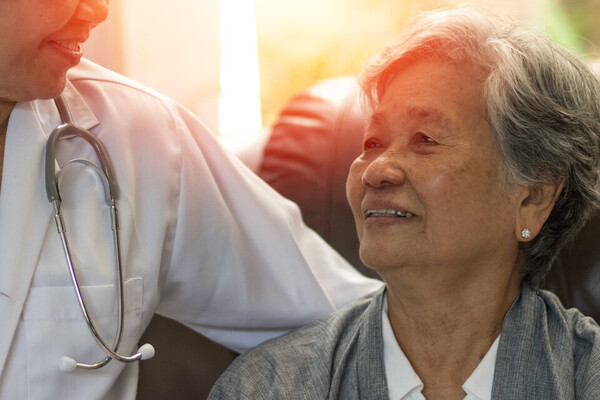
A plan to introduce an “elderly primary care physician system” is being pushed to improve the health of older adults and prevent and treat diseases.
Rep. Shin Hyun-young of the Democratic Party of Korea introduced the “Elderly Welfare Act Amendment Bill' on Thursday.
Korea's primary care physician system is being piloted in only a few areas, such as health doctors for the disabled and dental doctors for elementary school students. However, the need to introduce a primary care physician system for old adults has also been raised recently.
According to the report, “Inappropriate prescription and use of drugs and polypharmacy in older adults and its impact based on big data” submitted by the National Evidence-based healthcare Collaborating Agency (NECA), 35.4 percent of 66-year-olds were taking five or more polypharmacy drugs and 8.8 percent were taking 10 or more drugs at the same time in 2021.
In addition, 53.7 percent were taking at least one geriatric inappropriate drug, and those who used geriatric inappropriate drugs had a 25 percent increased risk of death compared to those who did not.
"There is a need for personalized care from the patient's primary care physician to reduce excessive healthcare utilization, including the problem of polypharmacy, and for an integrated and comprehensive approach to complex diseases," Rep. Shin said.
Shin’s amendment to the Elderly Welfare Act calls for the central and local governments to implement a personal geriatrician system to promote the health of older adults and prevent and treat diseases.
"The introduction of a primary care physician system will enable careful healthcare tailored to each patient's characteristics, prevent redundant medical expenditures, and positively impact health insurance finances," the DPK lawmaker said. "It is also expected to alleviate people flocking to large hospitals for mild illnesses by revitalizing primary care.
Shin emphasized that healthy aging in a superaged society is vital to future healthcare policy.
"If there is a primary care physician for older adults in addition to providing guidance on which hospital and department to visit when unwell, the entire process from prevention, diagnosis, treatment, and aftercare can be operated efficiently by receiving the necessary medical treatment at the right time and place in a customized manner, rather than overtreatment or inappropriate treatment,” she said.

